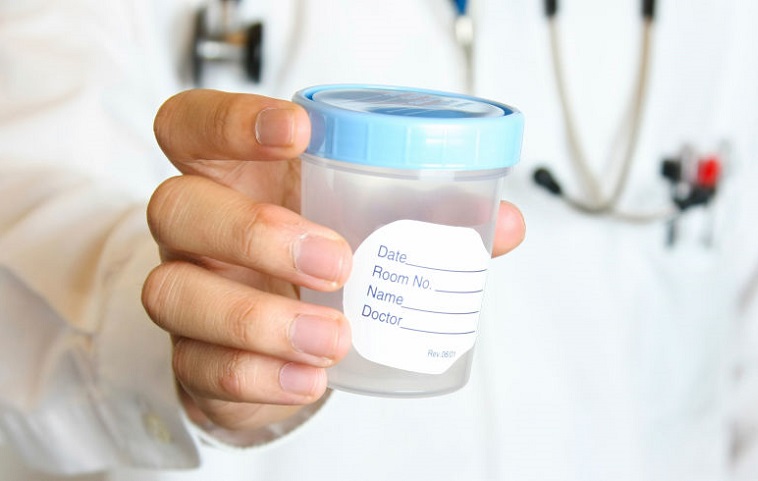Stages of IVF treatment

What are the methods for selecting healthy sperm?
3 October 2022
What factors increase the chances of IVF?
3 October 2022Stages of IVF treatment

Stages of IVF treatment
Science and technology are developing rapidly, developments follow each other at breakneck speed. Thus, the problems considered insoluble in the medical world are becoming less and less every day. In this context, infertility, which affects approximately 15% of all men and women in the world, is becoming history. Because while there are many treatment options for couples who are unable to have a child naturally, one or more of these options can solve a couple’s problem. Of course, in vitro fertilization is the method that gives the most successful results among all these treatments and gives couples the most hope. Since there is a chance of pregnancy if there are still viable reproductive cells, even if their quality or quantity is low.
How is IVF done?
When couples who are unable to have a baby naturally go to the doctor with suspicion of infertility, both men and women are given some tests and examinations. Based on the results of these examinations, it is determined whether the cause of infertility is a factor of a woman, a man, or both. Although not very common, in some cases the factor that can cause infertility cannot be determined, and in such cases “unexplained infertility” is cited.
After this stage, some applications are made to eliminate or neutralize the factor that causes infertility. If it is concluded that assisted reproductive therapies, which are less expensive and less time-consuming than in vitro fertilization treatments, will be more effective, one of them is used. Otherwise, start IVF treatment.
For this, reproductive cells are taken from men and women. These cells are cleaned and sorted in the laboratory, the highest quality cells are selected, and fertilization takes place by combining eggs and sperm. Fertilized eggs are kept in special fluids for some time to determine the best quality, viability and suitability for pregnancy for the formation of embryos. Several embryos that have successfully survived all these processes are placed in the womb of the future mother. After a 12-day period after this procedure, the expectant mother is given a pregnancy test and determines whether pregnancy can be achieved.
What are the stages of IVF?
- Consultation
During the counseling phase, which is the first step in IVF treatment, it is important to inform the couple and help make the process more conscious. At this stage, both the IVF specialists and the institution’s counseling psychologist, if available, explain the entire process to the mother and father candidates and help them navigate through it more easily. When the couple feels fully prepared, a detailed medical examination is carried out. In this process, the couple’s age is studied, whether they have had a child before, whether they have been treated for infertility or not, and try to follow the path accordingly. In particular, information such as the fact that the couple has a certain disease, the presence of a drug that must be used constantly, whether the expectant mother had a miscarriage, any operations performed on the genital tract, which will affect the course and success of treatment, is important. In addition, the results of all analyzes and drawings taken during this pregnancy adventure are important in planning the treatment process. In the light of all this information, if it can be seen that there are no obstacles, the appropriate time to start treatment is determined and the date of the stage of development of the egg is determined. This phase of counseling usually takes 1-2 days, depending on the needs of the couple.
- Egg development
Egg and sperm quality are the most important factors determining the success of IVF treatment. If the future father did not suffer from serious illnesses, it is usually not difficult to obtain sperm. However, the age of the future mother, her experiences, many of her physical, psychological and mental characteristics significantly affect the quality and quantity of eggs. In this regard, if there is a state of infertility, the woman’s eggs should develop in the best possible way.
To do this, the ovaries will be stimulated and the eggs will develop. The presence of the maximum possible number of eggs grown to the most favorable sizes significantly affects the success of IVF treatment. Because the more eggs you get, the easier it will be to choose the best among these eggs and find better ones. A large number of quality eggs means a large number of quality embryos, which means an increased chance of pregnancy. To do this, use needles for developing eggs. This process of egg development takes an average of about 15 days. At this time, it is important that the woman, and not the man, participate in every step. Because it will be enough for a man to participate only at the stages of counseling and sperm collection.
- Collection of eggs
During the development phase of the egg, it is now necessary to collect the eggs that have developed with the help of needles. During the appropriate period, the expectant mother is called to the clinic and the eggs are collected using special methods. Collecting eggs takes an average of about half an hour. Then they are washed in the laboratory, sorted, subjected to some medical treatments, and the highest quality ones are sent for fertilization. On the same day, the future father must also donate sperm. If live spermatozoa are found in the semen obtained as a result of natural ejaculation, or there are none at all, the micro-TESE method is used, and the sperm is surgically taken from the man.
- Fertilization
Thereafter, sperm and eggs suitable for fertilization remain in the same environment, and the sperm are expected to fertilize the egg. Eggs capable of fertilization are placed in an incubator. Among Embryosformed by fertilization, a selection will be made, which can last 2 days. This process takes approximately 2 days.
- Embryo transfer
Healthy embryos that have successfully passed all the processes will be transferred to the uterus of the expectant mother. How many embryos will be transferred is decided by assessing the woman’s age, whether she has another child, or if she has multiple pregnancies. This process takes about 10 minutes and the woman does not feel any pain. In the subsequent period, in fact, the whole process is the same as with naturally occurring pregnancies. On the 12th day after the embryo transfer, a pregnancy blood test is performed to determine if the treatment was successful.
How long will IVF treatment take?
Not in every province of our country you can find safe IVF centers that provide quality treatment services. For this reason, it is usually necessary to travel to big cities for IVF treatment. In this regard, it is important how long the IVF treatment will take and whether you will need to stay in the hospital. Because during treatment, problems such as accommodation and, if the couple is working, obtaining permission can arise. In this regard, it is worth emphasizing that it is enough for future fathers to come to the clinic only twice during the treatment. See: Frequently Asked Questions about IVF.
A father-to-be who comes into the counseling and donation phases can continue to work outside of that. At each stage of treatment, the expectant mother has to come to the clinic. That is why the counseling phase takes an average of 1 day, the egg development phase takes 15 days (in some cases, the woman can give injections herself or have them ordered), the egg collection process takes 10 minutes and the woman, of course, should come to the clinic during this same day. Finally, a blood test for pregnancy can be done at any medical facility. In other words, it is not necessary to go to an IVF center for this. To sum up, IVF treatment takes a maximum of 17 days as 1 + 15 + 1 in total for a woman. However, the periods indicated here refer to the average course of IVF treatment, this period may vary depending on the specific conditions.

